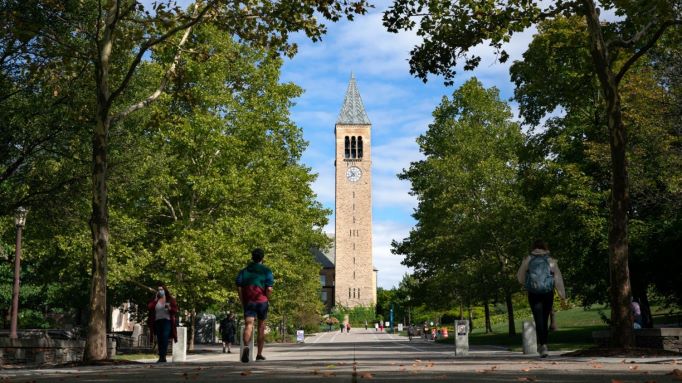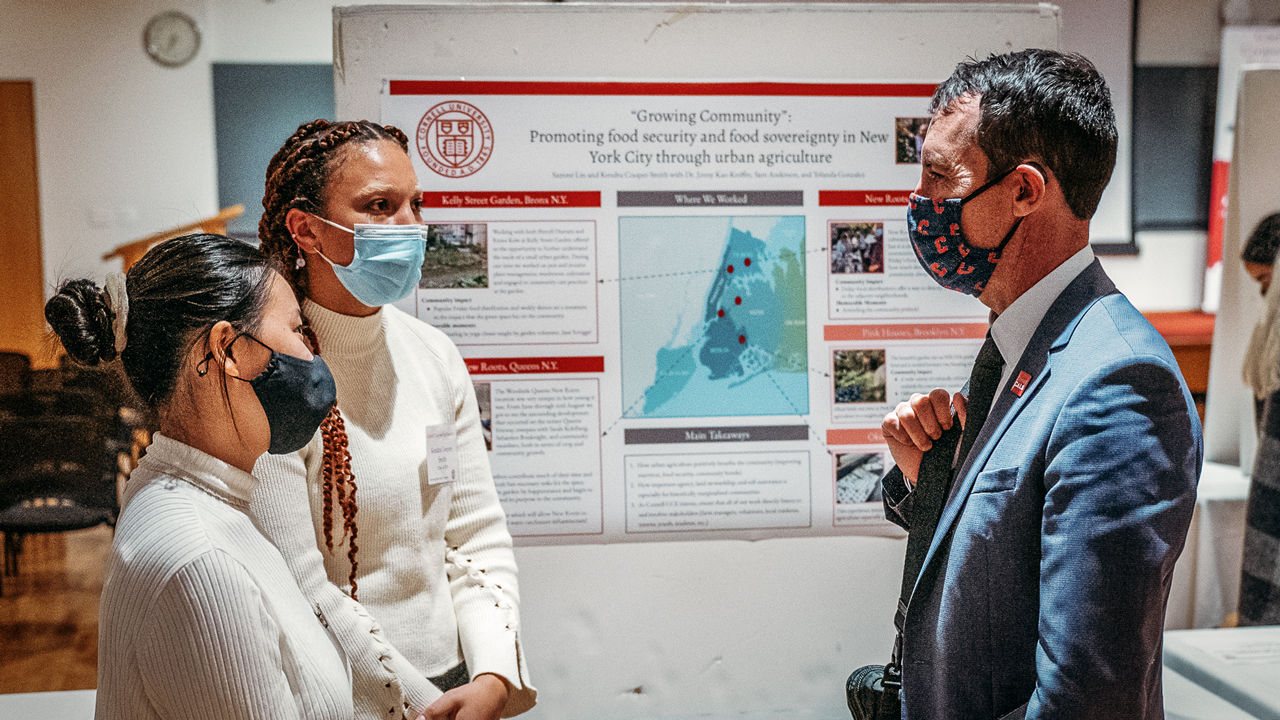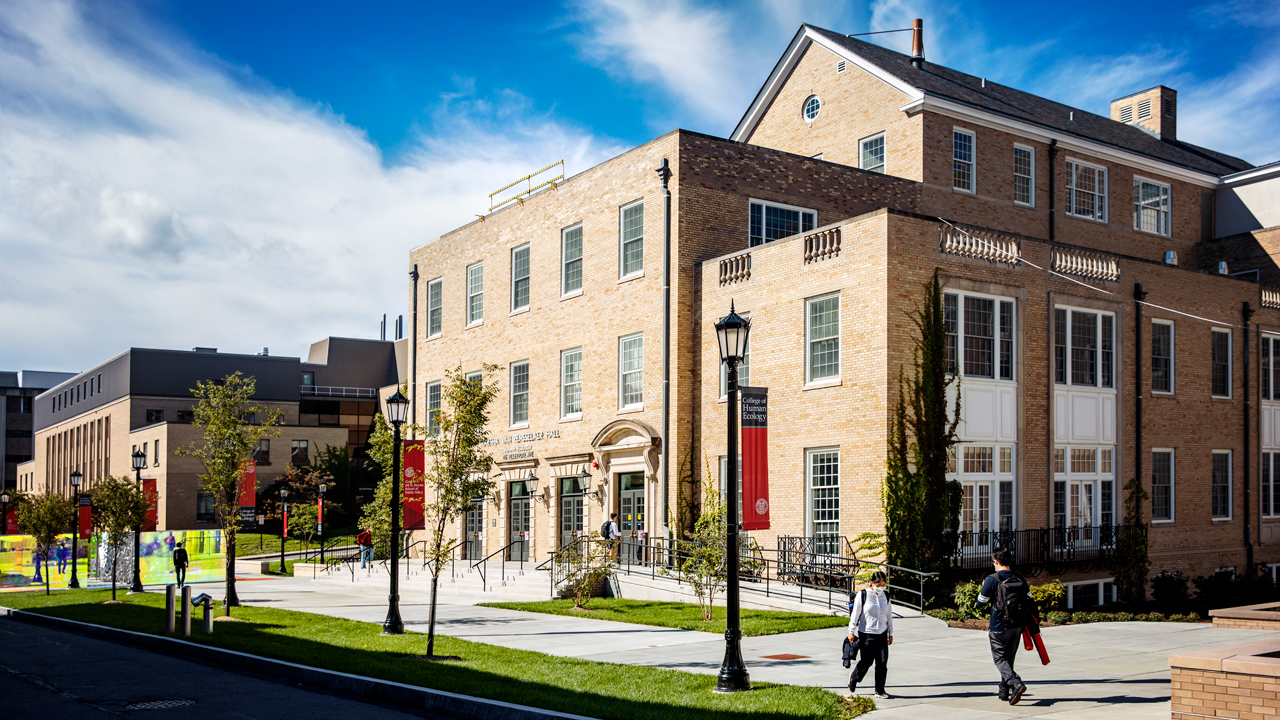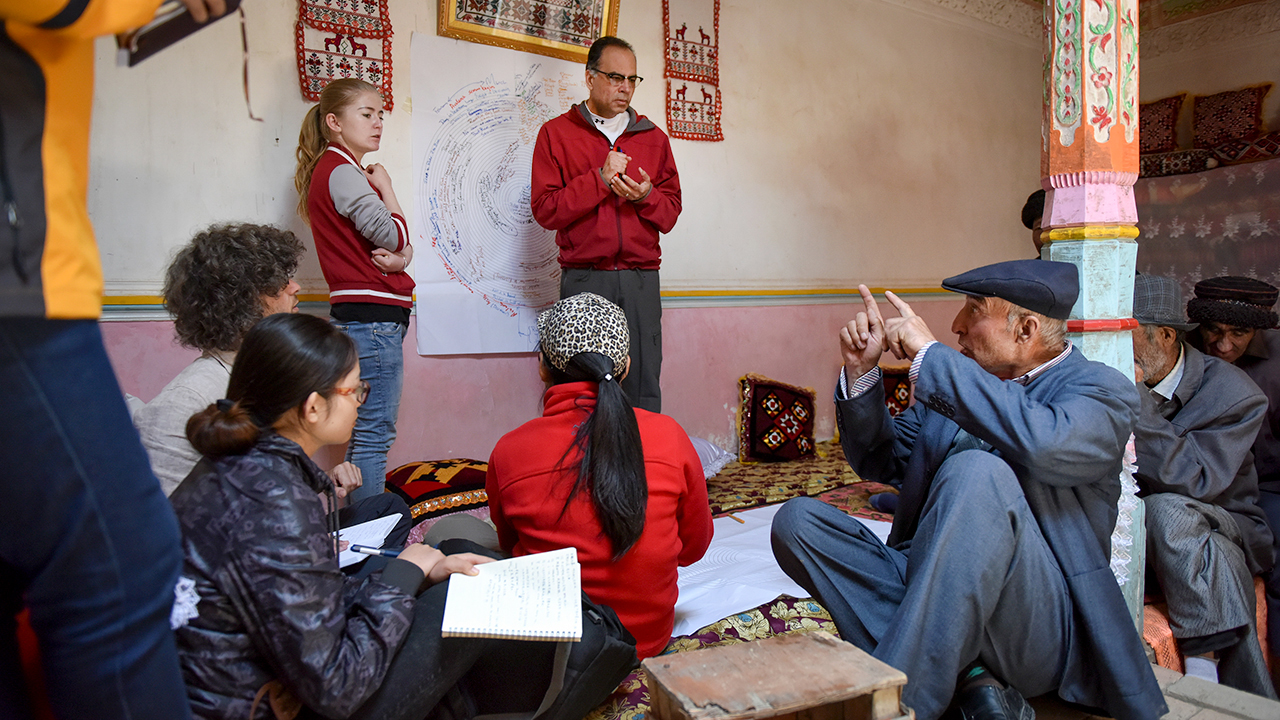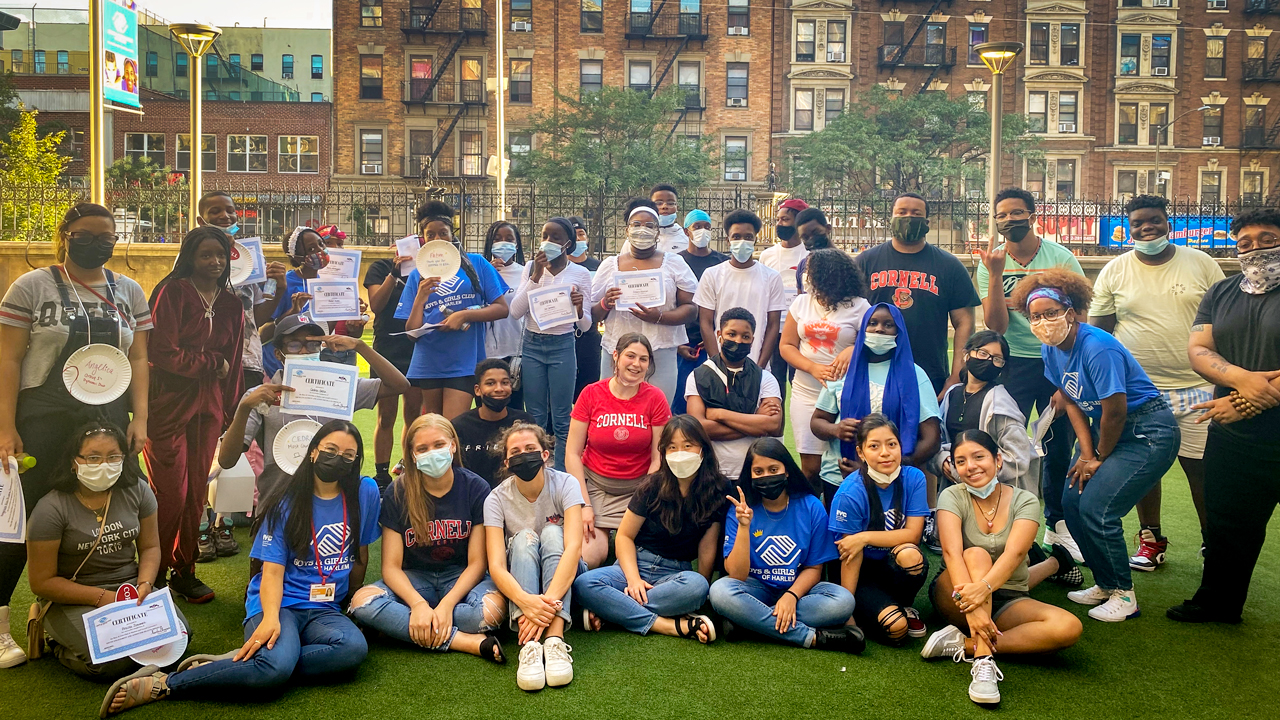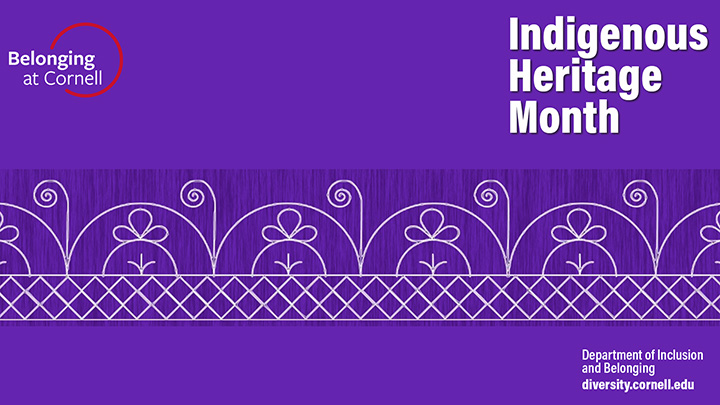Belonging at Cornell News
November 1, 2021
Dear Cornellians,
Belonging at Cornell connects a vast range of faculty, student, staff, and university- and college-wide initiatives—everything from diversity programs in engineering, to a new Law School concentration in Law, Equity, and Structural Exclusion, to vaccine education for underrepresented high school and college students at Weill Cornell Medicine, to the Inclusive Excellence Network for staff.
While our diversity, equity, and inclusion initiatives are far too expansive to fit into regular community updates, it’s important that all of us understand both the scope of this work and how intrinsic it is to who we are and what we do at Cornell. I’m writing you today to share just some of our work at Cornell this semester to honor our founding commitment of being an institution for “any person,” and our core value of being a community of belonging.
Campus safety initiatives
The final recommendations of our Public Safety Advisory Committee were released, and my response shared with the community, earlier this year. In line with PSAC recommendations, we have now launched our new Community Response Team, and will develop a communications campaign to educate the Cornell community about its role. We will also take measures to further enhance the diversity of our public safety workforce. These changes are not the end of our work to build a safer and more just approach to public safety, but our first steps; the committee is currently evaluating alternative public safety models and performing a deeper review of activity metrics, and plans to have more detailed recommendations by the end of the academic year.
Belonging at Cornell research and scholarship initiatives
Belonging at Cornell innovation grants, announced earlier this year, are already supporting a range of projects that align with university objectives of improving the Cornell experience for students, faculty, and staff, and supporting the environment of Cornell as a great place to study and work. Projects include the Summit on Entrepreneurship and Equity, Sustainability, and Social Justice, held last month; Story Circles: Intercultural Understanding Workshops; and Any Person, Many Stories: Histories of Exclusion and Inclusion at Cornell.
Faculty hiring initiatives
Through the Pathways to Social Justice faculty cohort hiring initiative, the College of Human Ecology has welcomed eight new faculty members whose work addresses race, ethnicity, and the nature, persistence, and consequences of inequality. Leading the cohort initiative is Professor Eve De Rosa, Dean’s Fellow for Racial and Social Justice in Human Ecology and the Dean of Faculty at Cornell.
In the College of Agriculture and Life Sciences, a separate cluster hire initiative, with a goal of at least five new faculty hires, aims to leverage existing leadership in solution-based physical and/or social sciences to explicitly address systemic challenges facing historically and habitually marginalized and disadvantaged communities. A similar effort is being mounted in the College of Architecture, Art, and Planning. And thanks to a National Institutes of Health program aimed at expanding faculty diversity in the biomedical sciences, a $16 million Faculty Institutional Recruitment for Sustainable Transformation (FIRST) Award will support the hiring and retention of 10 new assistant professors over the next five years in three research clusters: quantitative biomedical sciences, infection biology, and health equity. The hires will be made across the College of Veterinary Medicine, College of Agriculture and Life Sciences, College of Arts and Sciences, Cornell Bowers CIS, College of Human Ecology, and College of Engineering.
Diversity leadership
We’re glad to welcome Sonia Rucker, formerly an associate director of diversity and inclusion in the Samuel Curtis Johnson Graduate School of Management, back to Cornell as associate vice president of the Department of Inclusion and Belonging and the staff representative to the Presidential Advisors on Diversity and Equity. She fills the role held by Angela Winfield, who, among her many accomplishments before leaving the university last May, led the development of the six-part staff training course Advancing Diversity, Equity, and Inclusion at Cornell.
Racial justice research and education
As proposed by faculty committees charged and led by the Dean and Associate Dean of Faculty, we are moving forward with the development of a Center for Racial Justice and Equitable Futures that will serve as a central node connecting and amplifying scholarship on racism, indigeneity, ethnicity, and bias. We will be recruiting a director, who will establish the Center and develop academic programming that will bring faculty together from across the university.
Each of our schools and colleges is also working to develop a plan for an educational program for its students that addresses issues of racial justice, with the goal of having course offerings in place by the fall 2022 semester. The development of additional educational programming for faculty is being led by the Office of Faculty Development and Diversity in collaboration with the Academic Diversity Council.
Understanding our land-grant history with American Indian and Indigenous nations
Guided by the recommendations and input of American Indian and Indigenous Studies Program (AIISP) faculty and staff, we are committed to exploring our history as a land-grant institution and to sharing that history. As part of that effort, we are developing a dedicated website to share information about both our current and our historic ties to Indigenous communities, including our many vibrant programs supporting education, research, and engagement with American Indian and Indigenous communities and around Indigenous issues. The website is expected to launch later this year.
In addition, the university has formally adopted for use the land acknowledgment statement developed by AIISP in consultation with the Gayogo̱hó꞉nǫʼ traditional leadership and is developing meaningful ways to engage further with Indigenous communities by expanding educational programs and strengthening the recruitment and retention of Indigenous students.
These initiatives, of course, are just a small sample of the dedicated work going on across Cornell. I encourage you all to bookmark our diversity webpage, learn about the many programs and initiatives taking place across campus, and, most importantly, find ways to take part in this work yourselves.
Sincerely,
Martha E. Pollack, President
Advancing Diversity and Inclusion
Recent News
More Headlines
New A&S program expands undergrad research opportunities
NIH grant will support strengthening faculty diversity
Cooperative Extension in NYC: ‘Uniquely suited to help’
Marla Love appointed dean of students
Precollege scholarship recipient wants to change healthcare in the Philippines
Upcoming Events
Diversity in Business National Career Fair
Tues. Nov. 9 at 4:00 p.m.
Leverage this opportunity for students and employers of diverse backgrounds to network and learn about each other.
It Could Lead to Dancing: Mixed-Sex Dancing and Jewish Modernity
Wed. Nov. 10 at 4:30 p.m.
Join Sonia Gollance for a digital book talk/discussion about her new book.
The Tompkins County Rural Black Residents Project
Thur. Nov. 18 at 4:45 p.m.
Join Rural Humanities for a presentation on reseeing the past through digital maps and historical demography.
November marks both Veteran's Day and Indigenous Heritage Month. Join Cornell students, faculty and staff in celebrating and recognizing these important events. Diversity celebration resources, activities and events can be found on Cornell’s diversity website.
Resources & Opportunities
Connect to SCL identity and cultural centers and groups
Engage with individuals of similar background or connect with identities other than your own through resource centers, advising units, and affinity groups.
2021-22 Virtual Building Allyship Series
Thur. Nov. 18 at 12:00 p.m.
Join panelists as they explore marginalization and racialization of international scholar identities within the U.S. context.
Navigating MWBE Certification
Thur. Nov. 4 at 6:00 p.m.
Join Cornell Cooperative Extension for a deeper dive into the certification process and how to make it as simple as possible to certify.
Partnership Aims to Increase Diversity in Materials Science
Check out opportunities to support collaborative research between Cornell and NC A&T, an HBCU member university.
Mapping Our Global Community
Learn about Cornell's international reach with students, faculty, staff and alumni across the globe.
The Inclusive Excellence Network
Listen to new podcasts as members of Cornell unpack various topics related to belonging at work.
